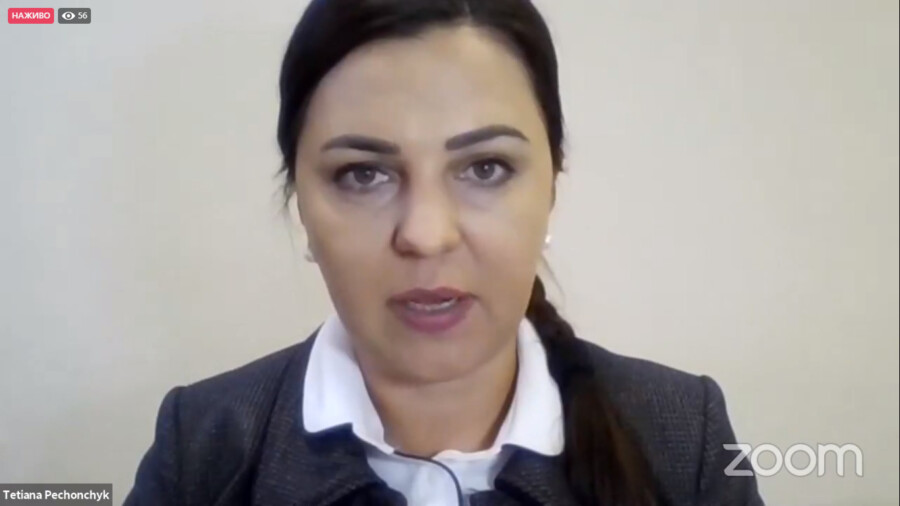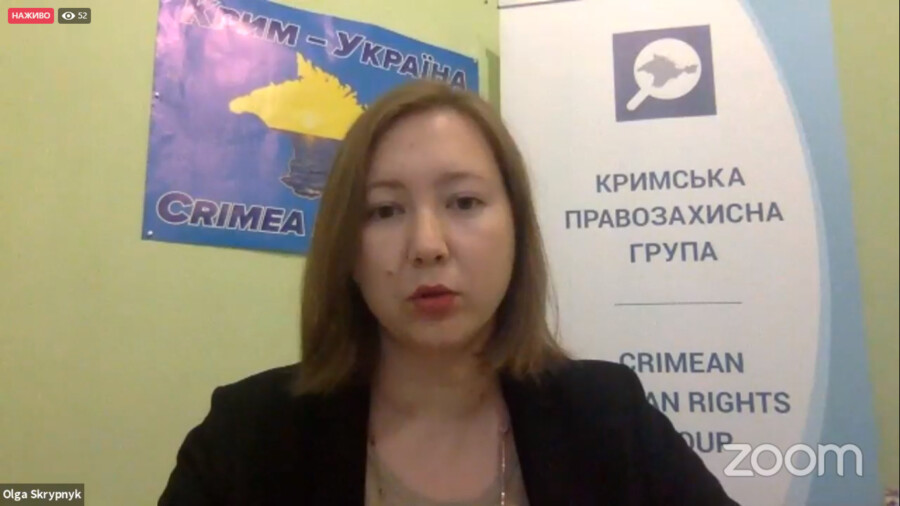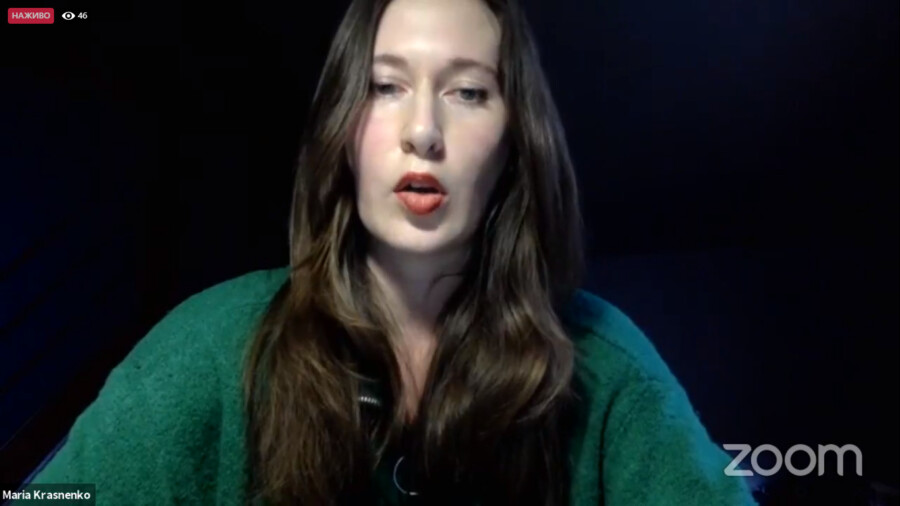Ukraine is in no hurry to implement UN recommendations on protection of victims of conflict – human rights activists
The UN member states’ recommendations for the protection of victims of conflict, which Ukraine received in 2017, are almost not implemented by the state and are still pertinent.
The corresponding statement was made by experts of the Coalition of Non-Governmental Organizations for the Protection of Victims of Armed Conflict on Monday, December 14, during the presentation of an alternative report on Ukraine’s implementation of the relevant recommendations.
Tetiana Pechonchyk, Chair of the ZMINA Human Rights Centre, informs that Ukraine will submit an interim report on the implementation of a number of UN human rights recommendations this year. Ukraine received these recommendations in 2017 after presenting its regular report on the human rights situation within the framework of the 3rd cycle of the Universal Periodic Review (UPR). A part of the UN member states’ proposals referred to protection of the rights of victims of armed conflict.

Human rights activists, for their part, sent an alternative report to the UN Human Rights Council in summer, analyzing how Ukraine is implementing key recommendations to ensure the rights of residents of the occupied territories, internally displaced persons, political prisoners and their families and indicating proposals to eliminate consequences of the armed conflict.
According to Aliona Luniova, advocacy manager at the ZMINA Human Rights Centre, one of the important blocks of recommendations concerns the protection of the rights of residents of the occupied territories. “Despite some progress, there are still many problems with the full access of residents of the occupied territories to administrative services. Undoubtedly, opening of the administrative services center at the Chonhar border crossing point can be welcomed. At the same time, any state-of-the-art administrative services center will not be able to resolve the lack of administrative procedure for recognizing the facts of birth and death in the occupied territories,” Luniova explains.
The growing number of people illegally imprisoned due to the occupation of Crimea and parts of Donetsk and Luhansk regions also poses an acute problem. Olha Skrypnyk, Chair of the Crimean Human Rights Group, emphasizes that no Crimean political prisoners or hostages held in the so-called “Donetsk People’s Republic / Luhansk People’s Republic” have been released recently within the framework of political agreements. As noted, these illegally imprisoned people need the protection guarantees from Ukraine. However, the draft law on social and legal protection of persons deprived of their liberty as a result of armed aggression against Ukraine, which had been elaborated by relevant government agencies and human rights activists, was not even registered at the Parliament.

The issue of enforced disappearances is closely related to the protection of the rights of persons deprived of their liberty as a result of occupation. Olha Kuryshko, coordinator of the legal department at CrimeaSOS, notes that the state does not have systematic measures to register and search for victims of enforced disappearances in Crimea and that there is no constant support for their families. “We should also highlight the insufficient efforts of Ukraine in the search for missing persons. The point is that the legislation regulates the actions of government agencies in searching for missing persons in the war zone only in eastern Ukraine and does not cover the occupied Crimea. Therefore, there is a risk that the problem of missing persons in Crimea will go unnoticed by the Commission on Persons Gone Missing under Special Circumstances and the information about these people will not be reflected in the unified register,” the expert said.
Protecting the social rights of war victims is another challenge facing the state. Maria Krasnenko, lawyer at the public holding “Group of Influence”, notes that residents of the temporarily occupied territories are still limited in their ability to get pensions: “They are forced to register as internally displaced persons and undergo regular identification and verification procedures. Bill No.2083-d, registered more than a year ago, which provides for a mechanism for paying pensions to residents of the occupied territories, is not moving forward.”

Moreover, in the context of the COVID-19 pandemic, this issue not only becomes even more relevant but creates conditions for a humanitarian crisis in the occupied territories of Donbas.
“There are also no systemic changes in social, housing and other areas that are important for IDPs. The documents defining strategic integration plans and long-term decisions in these areas expire this year. And they have not been reapproved yet,” Krasnenko sums up.
Anastasia Odintsova, legal analyst at the Charitable Foundation “Right to Protection”, says that some of the recommendations refer to elaboration of a system for compensating for the conflict-related damage. “The war has been ongoing for the seventh year already. Over this period, more than 3,000 civilians have been killed and more than 7,000 civilians have been wounded, more than 20,000 houses have been damaged or destroyed in eastern Ukraine at least,” the human rights activist said, adding that the concept of civilians affected by the armed conflict has not yet been enshrined in law and there are no unified registers of victims and destroyed property. “As a result, the budget lacks adequate funding and proper assistance to the population is not provided,” the analyst underscores.
Currently, the Ministry of Reintegration of the Temporarily Occupied Territories is the central body that should implement policies in this area and overcome the negative consequences of the conflict. According to Oleksandra Dvoretska, co-founder of the Charitable Foundation “East-SOS”, the Ministry was significantly strengthened in March 2020 as it was headed by the Vice Prime Minister that must have brought the issue of reintegration to a new level. In addition, the funding for the Ministry increased. Although the Ministry’s structure has changed dynamically over the past five years, the expert notes, its weak representation in the regions remains unchanged as it currently has structural units only in Donetsk, Luhansk and Kherson regions. “On average, 2-3 employees of the Ministry work in the regions and such staff strength is critically low for obtaining adequate information from the regions neighboring the temporarily occupied territories,” Dvoretska concludes.
Alternative report is available in Ukrainian and English.
Video from the presentation of an alternative report is here.
The Coalition of Non-Governmental Organizations for the Protection of Victims of Armed Conflict consists of Crimean Human Rights Group, Charitable Foundation “Right to Protection”, ZMINA Human Rights Centre, Charitable Foundation “Stabilization Support Services”, Charitable Foundation “East-SOS”, NGO “CrimeaSOS”, Public Holding “Group of Influence”, NGO “Donbas-SOS”.
The Universal Periodic Review (UPR) is a process within which each of the 193 UN member states should report to the United Nations on how it respects human rights and freedoms and receive a critical appraisal of its report. Each country undergoes a Universal Periodic Review once every 4.5 years. During the review, the country submits its report on the human rights situation. Human rights activists, in turn, submit their alternative report. Ukraine undergoes a universal periodic review for the third time. Previously, Ukraine underwent UPR in 2008 and 2012.
If you have found a spelling error, please, notify us by selecting that text and pressing Ctrl+Enter.















